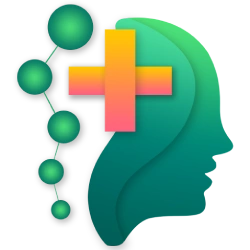In the digital age, we can instantly communicate with people around the world, access a wealth of information at our fingertips, and work from anywhere with an internet connection. However, this hyperconnected world also presents unique challenges to our mental health.
The constant exposure to screens, social media, and information overload can lead to feelings of anxiety, depression, and isolation. Research has shown that excessive screen time can negatively impact our sleep, attention span, and overall well-being. Social media platforms, while designed to bring us closer together, can often have the opposite effect. Comparing ourselves to others, experiencing cyberbullying, and feeling overwhelmed by the sheer volume of content can all contribute to poor mental health.
One of the most common mental health issues in the digital age is anxiety. The fear of missing out (FOMO) is a significant contributor to this, as we constantly compare ourselves to others and worry about being left behind. Social media can exacerbate this feeling, as we are bombarded with images and updates from others’ seemingly perfect lives. This can lead to feeling inadequate, having low self-esteem, and even being depressed.
Another common issue is the phenomenon of “doomscrolling” – the act of continuously scrolling through bad news and negative content on social media. This can lead to feelings of helplessness, despair, and even trauma. It’s essential to take breaks from social media and limit our exposure to negative content to maintain our mental well-being.
So, how can we maintain mental wellness in a hyperconnected world? Here are some strategies:
- Set boundaries: It’s essential to set boundaries around our screen time and social media use. This can include setting specific times of the day to check our phones, turning off notifications, and taking regular breaks from screens.
- Practice self-care: Self-care is crucial for maintaining mental wellness. This can include activities such as meditation, exercise, reading, or spending time in nature. It’s essential to find activities that bring us joy and prioritize them in our daily lives.
- Connect with others: While technology can sometimes make us feel more isolated, it can also be a tool for connecting with others. Reach out to friends and family, join online communities, and participate in virtual events to build connections and combat feelings of loneliness.
- Seek professional help: If you’re struggling with your mental health, don’t hesitate to seek professional help. Therapists, counselors, and mental health professionals can provide support, guidance, and treatment for mental health issues.
- Practice gratitude: Focusing on the positive aspects of our lives can help combat feelings of anxiety and depression. Practice gratitude by writing down things you’re thankful for each day, sharing positive experiences with others, and focusing on the good in your life.
In conclusion, the digital age presents unique challenges to our mental health. However, by setting boundaries, practicing self-care, connecting with others, seeking professional help when needed, and practicing gratitude, we can maintain mental wellness in a hyperconnected world. It’s essential to prioritize our mental health and take proactive steps to protect it in the digital age.
Dr. Nishtha Dalwani’s approach to mental health is grounded in her belief that mental wellness is a fundamental human right. She is committed to breaking down the stigma surrounding mental health and creating a safe and supportive space for individuals to seek help. Through her work, she hopes to empower individuals to take control of their mental health and build a better future for themselves and their communities.
Book an appointment with Dr. Nishtha Dalwani, a distinguished Psychiatrist and Psychotherapist, known for her compassionate care and expertise. Call now on 99202 20305.

